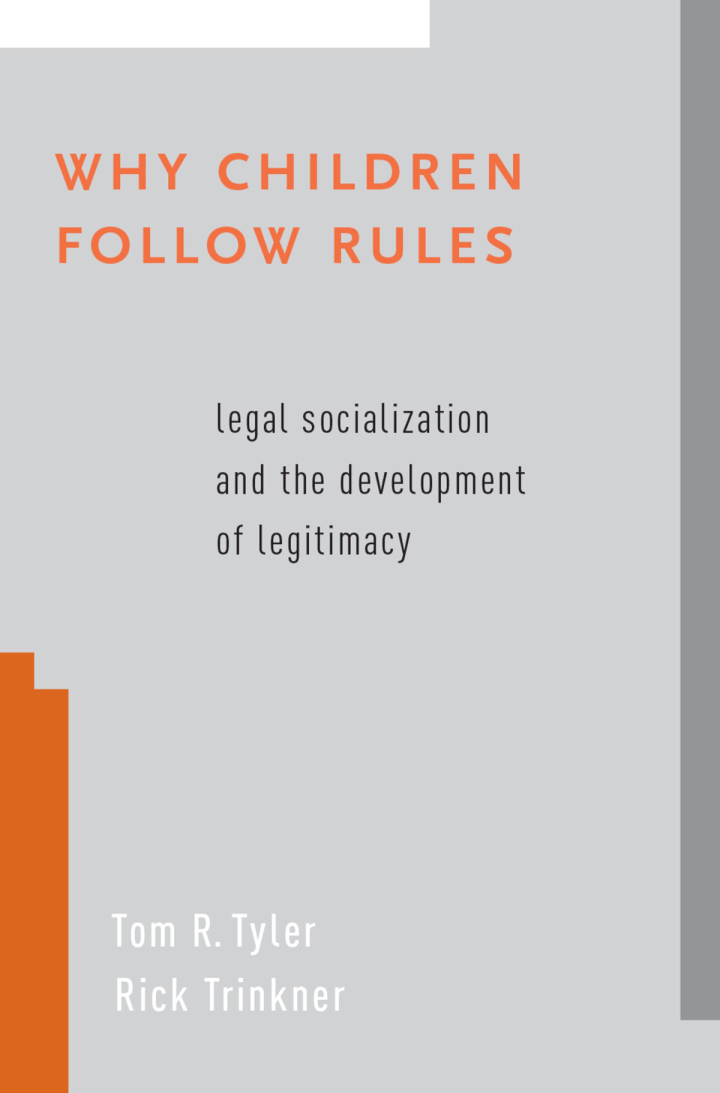Why Children Follow Rules Legal Socialization and the Development of Legitimacy
$12.35
Attention: This is just ebook, Access Codes or any other Supplements excluded! / File Delivery: Sent Via Email within 24 hours!
SKU: 43c33a193942
Category: Law Textbooks
Description
-
Author(s)Tom R. Tyler; Rick Trinkner
-
PublisherOxford University Press
-
FormatPDF
-
Print ISBN
9780190644147, 0190644141 -
eText ISBN
9780190644147, 0190644141 -
Edition
-
Copyright
- Details
Legal socialization is the process by which children and adolescents acquire their law related values, attitudes, and reasoning capacities. Such values and attitudes, in particular legitimacy, underlie the ability and willingness to consent to laws and defer to legal authorities that make legitimacy based legal systems possible. By age eighteen a person’s orientation toward law is largely established, yet legal scholarship has largely ignored this process in favor of studying adults and their relationship to the law.Why Children Follow Rules focuses upon legal socialization outlining what is known about the process across three related, but distinct, contexts: the family, the school, and the juvenile justice system. Throughout, Tom Tyler and Rick Trinkner emphasize the degree to which individuals develop their orientations toward law and legal authority upon values connected to responsibility and obligation as opposed to fear of punishment. They argue that authorities can act in ways that internalize legal values and promote supportive attitudes. In particular, consensual legal authority is linked to three issues: how authorities make decisions, how they treat people, and whether they recognize the boundaries of their authority. When individuals experience authority that is fair, respectful, and aware of the limits of power, they are more likely to consent and follow directives.Despite clear evidence showing the benefits of consensual authority, strong pressures and popular support for the exercise of authority based on dominance and force persist in America’s families, schools, and within the juvenile justice system. As the currently low levels of public trust and confidence in the police, the courts, and the law undermine the effectiveness of our legal system, Tom Tyler and Rick Trinkner point to alternative way to foster the popular legitimacy of the law in an era of mistrust.
Related products
-

Business and Investment in Brazil Law and Practice
Rated 0 out of 5$66.62 Add to cart -

Blackstone’s Guide to the Proceeds of Crime Act 2002 5th Edition
Rated 0 out of 5$34.12 Add to cart -

Challenges for Humanitarian Intervention 1st Edition Ethical Demand and Political Reality
Rated 0 out of 5$27.62 Add to cart -

Challenging Acts of International Organizations Before National Courts 1st Edition
Rated 0 out of 5$43.88 Add to cart


